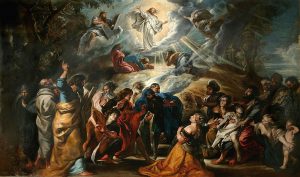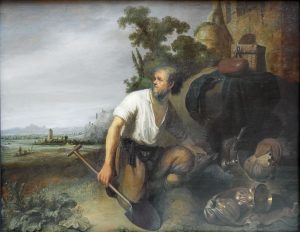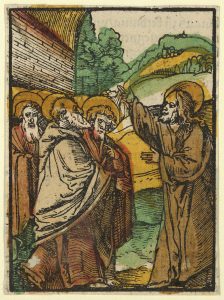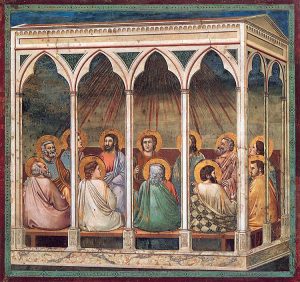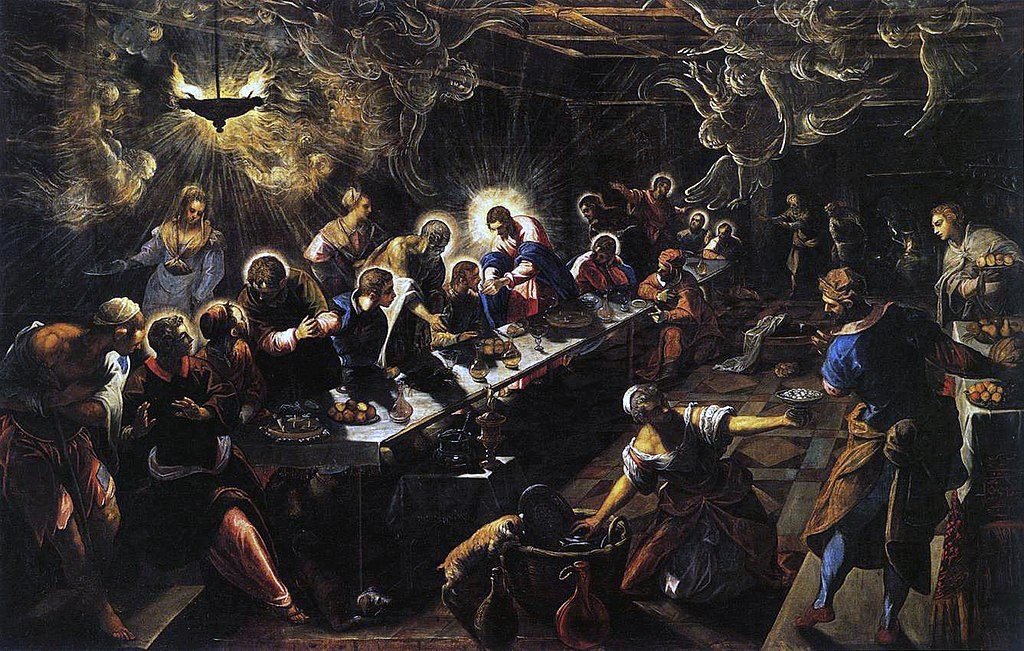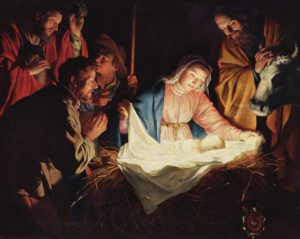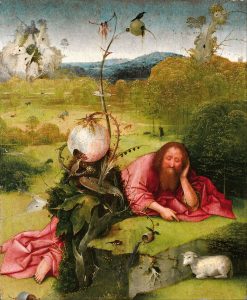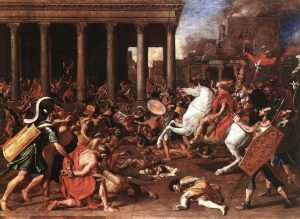Illuminations on the Lectionary readings for Aug. 13, 2023 (Pentecost 11A)
First Reading (Track One): Genesis 37:1-4, 12-28
Faith in the face of fear, faith as a source of strength: This idea shows up in Sunday’s readings in the stories of Joseph, threatened with death and then sold into slavery by his own brothers; and loyal Peter, confident that he can walk on Galilee’s choppy waters until his faith falls short and he starts to sink.
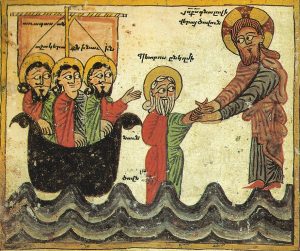
Jesus walking on water (1433), Armenian manuscript illumination in the Daniel of Uranc Gospel. Mesrop Mashtots Institute of Ancient Manuscripts, Armenia. (Click image to enlarge.)
In our Track One first reading we follow the Old Testament’s dysfunctional first family into its fourth generation. Jacob’s son Joseph’s encounter with his brothers reveals once again that even the patriarchs were flawed, broken, sometimes downright bad people. Yet still God loved them, as God loves us, and all ends well.
First Reading (Track Two): 1 Kings 19:9-18
The Prophet Elijah is not in a happy place when we encounter him in Sunday’s Track Two first reading. Elijah is fleeing for his life from an angry Queen Jezebel, and he feels alone and afraid. In despair, he believes that no one is on his side. But then he hears the word of God. An angel comes as a messenger an invites him to go stand on the mountain to meet God. Soon a great wind shakes his world. Then an earthquake and finally a fire shatter the peace around him. But God is not in any of those noisy eruptions. It is in the silence that follows, rather, that God’s voice is finally heard. God reassures Elijah, promising that he will succeed, that he will go on at God’s direction to anoint Israel’s kings and prophets.
Psalm (Track One): Psalm 105: 1-6, 16-22, 45b
This Psalm portion remembers Joseph’s life as a slave in Egypt, his feet bruised in fetters and his neck choked in a stout iron collar. Ultimately, though, the Psalmist reminds us, God was faithful to Joseph, who gained the Egyptian king’s trust and eventually rose to a place of power in Pharaoh’s court. God has done marvelous things for the people, the Psalmist exults. Sing praises! Glory in God’s holy name!
Psalm (Track Two): Psalm 85:8-13
The reassurance that we hear God giving to Elijah amid his lonely fear in the first reading is echoed in the Psalmist’s song in this beautiful portion of Psalm 85: God has forgiven our iniquity and blotted out our sins. Heaven and earth meet in truth and righteousness; righteousness and peace share a tender kiss. God grants prosperity and a fruitful harvest, these verses conclude, and all shall be well.
Second Reading: Romans 10:5-15
As we return to Paul’s Letter to the Romans after a week’s break for the Transfiguration, we find Paul still trying to persuade Rome’s Gentile Christian community and its Jewish Christians to live in harmony and love one another. Salvation comes to us all through Jesus, he writes. There is nothing we can do to earn it; Christ has done this all for us, with no distinction between Jew and Greek (Gentile): God is God of all. The word of faith is in us, and we are called to proclaim the good news of the Gospel so all may be saved.
Gospel: Matthew 14:22-33
Jesus walks on the water! This striking image is surely one of the most well-known Gospel stories. Now, imagine it from the viewpoint of the disciples. Jesus had made them go ahead without him so he could have a little time alone, away from the crowds, to pray in his grief after hearing of his cousin John’s beheading. Now a violent storm has come up, the apostles are alone on the boat, and they’re scared … and here comes Jesus, calmly walking across the stormy sea! Peter – the first of them all to recognize that it really is Jesus – steps out onto the water to greet Jesus. But his faith isn’t strong enough to keep him from sinking without the help of Jesus’s extended hand.Then the wind eases, they get into the boat, and the awed disciples now worship Jesus as the Son of God.

